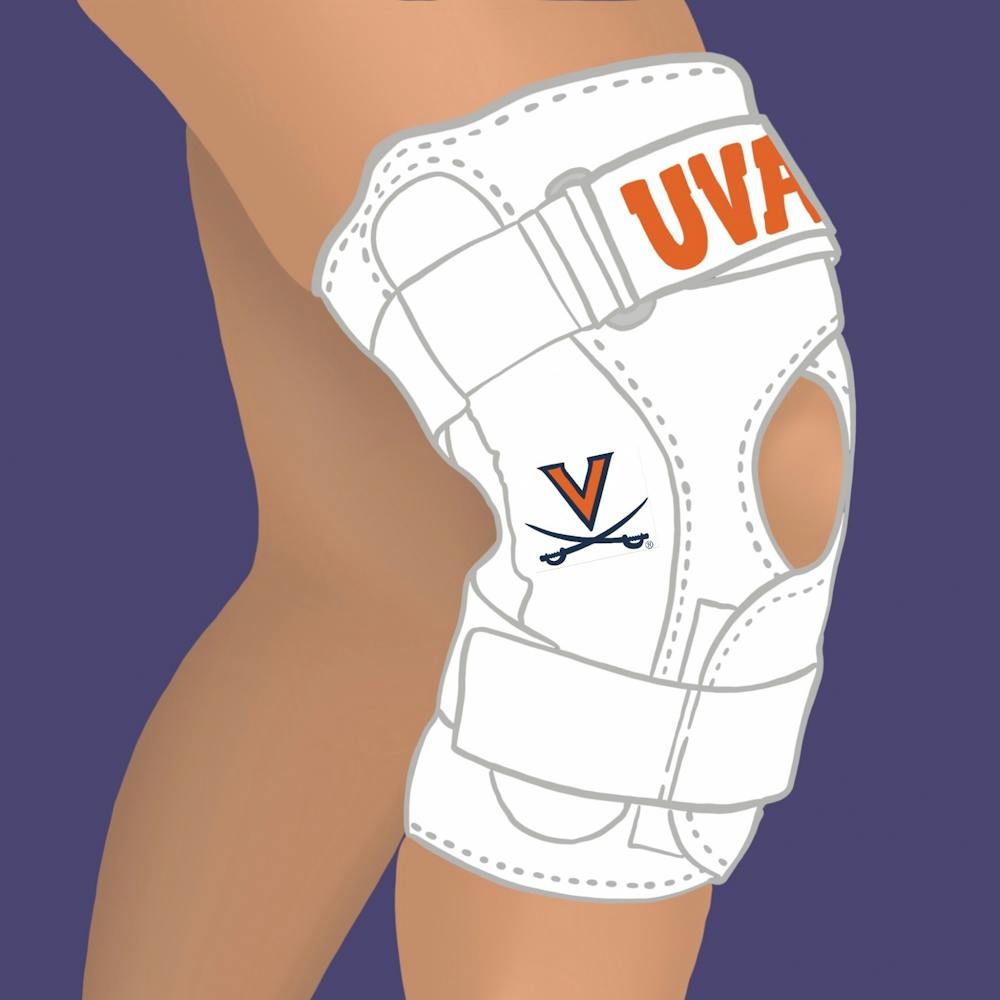Charlottesville-based medical device company, Icarus Medical, received a $600,000 research grant in October to aid in the development and production of their knee braces, which can relieve more knee pain than other braces on the market.
Dave Johnson, founder and chief executive officer of Icarus Medical, started the company after a high school football injury caused long-term damage to his knee. Johnson’s injury left him with patellofemoral osteoarthritis, which makes everyday tasks like bending down and even walking painful.
“I didn’t realize how debilitating it was going to be, but it just kept getting worse,” Johnson said. “I was faced with this dilemma of needing a joint replacement but being far too young to do that.”
Realizing there were no solutions for young people with patellofemoral osteoarthritis, Johnson started developing a knee brace designed to reduce strain on the joint. To do this, the brace has a tension system that removes up to 40 pounds from the knee, making everyday tasks much less painful.
“It’s about 15 million people that benefit from [the brace], and the average pain reduction for that population is 60 percent,” Johnson said. “They can be more active, have a better quality of life and better overall health.”
When Icarus Medical received their grant from Virginia Catalyst, a non-profit fund focused on helping innovation in Virginia, Icarus Medical decided not only to invest in research at the University and at Virginia Commonwealth University, but also hired University student engineers.
“We are really impressed with the talent we have the opportunity to work with at U.Va. We have great aspirations for what this company can do and we’re always looking for partners within the University and within the community.” Johnson said.
Benjamin Scire, fourth-year Engineering student and one of the lead design engineers at Icarus, joined Icarus in its early stages in 2020 and helped develop the Ascender knee brace. Scire said he thinks the research grant will help take the company to the next level.
“We need to get the resources and engineers we need to keep improving the automation and making [the manufacturing] more efficient, so that we can make someone a perfectly fitting knee brace in no time at all,” Scire said.
Affordability and accessibility are major considerations for Icarus. The braces are free under most insurance plans and are able to be customized quickly from anywhere. Currently, Icarus is able to scan a patient’s knee from an iPhone app anywhere in the country then 3D print the custom brace.
“If you want to get a custom knee brace, it’s going to take at least a month to receive it, and we are already doing it in about a week and a half,” Scire said. “We are going to be able to get that time lower and lower with the help from this grant.”
Zachary Kim, fourth-year Engineering student and mechanical engineer at Icarus, works on improving the Ascender and modeling the brace on patients. Not only is the technology and tension systems within the brace new, the automation and degree of customization is too.
“We definitely want to keep pushing the envelope of innovation” Kim said. “Very few products on the market are custom fit to this level”.
Partnering with universities and using the grant gives Icarus the opportunity to continue innovating on a larger scale.
Evan Eckersley, chief operations officer at Icarus Medical, has been with Icarus since 2020. Eckersley is working on optimizing the automation and production of the knee brace, which the grant will accelerate.
“The first aim of the grant and working with U.Va. is to complete the design automation of the device, so that we can basically take that scan and then automatically 3D print the device without any human involvement, just for the purpose of cost effectiveness, so we get the most optimal device” Eckersley said.
Icarus Medical has partnered with the University and Virginia Commonwealth University to conduct research on innovation and automation.
“Universities are huge for us,” Scire said. “We’ve got a lot of really intelligent orthopedic doctors at U.Va. and VCU who are going to launch these clinical studies right away. Getting that kind of network of experts is one of the best parts about working with universities.”
“We met some key people with a deep knowledge of things that we needed help with,” said Johnson.
The Charlottesville based startup looks to universities for more than research. Not only are the students playing important roles in the company, the student employees are gaining real work experience and seeing their hard work pay off on the patients they benefit.
“I feel like overall I'd become a much more well-rounded engineer and, I guess more ready for the workforce than I would have ever been in a corporate position,” Kim said. “Even though I am an undergraduate, I am applying the things I learned in the classroom into everyday life.”
Despite only being a few years old, the company has had critical innovative breakthroughs while working with universities and undergraduates.







